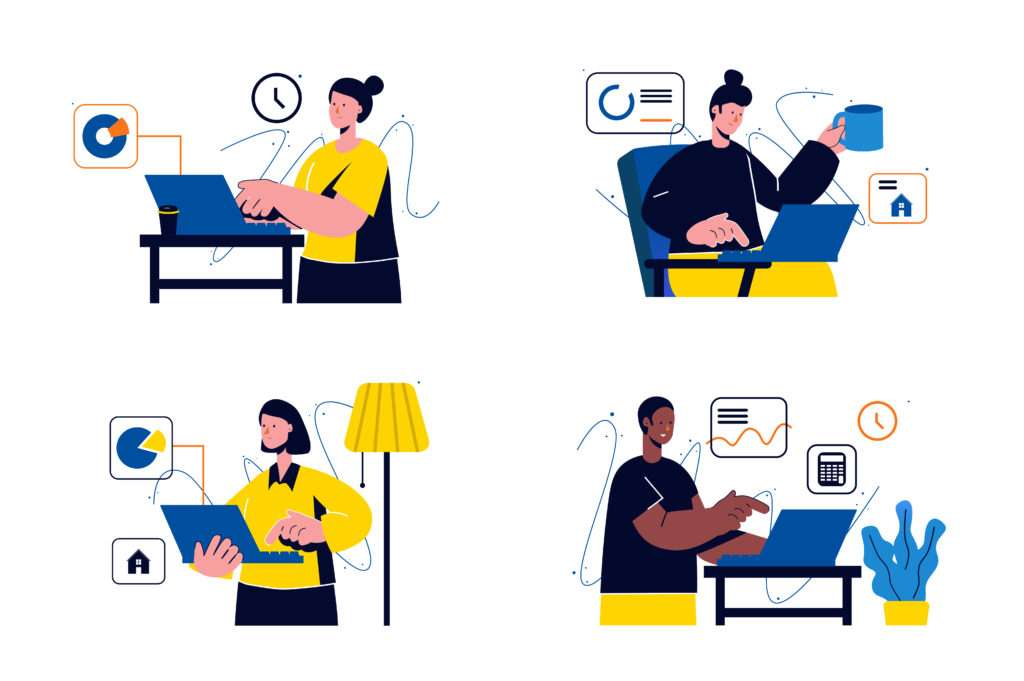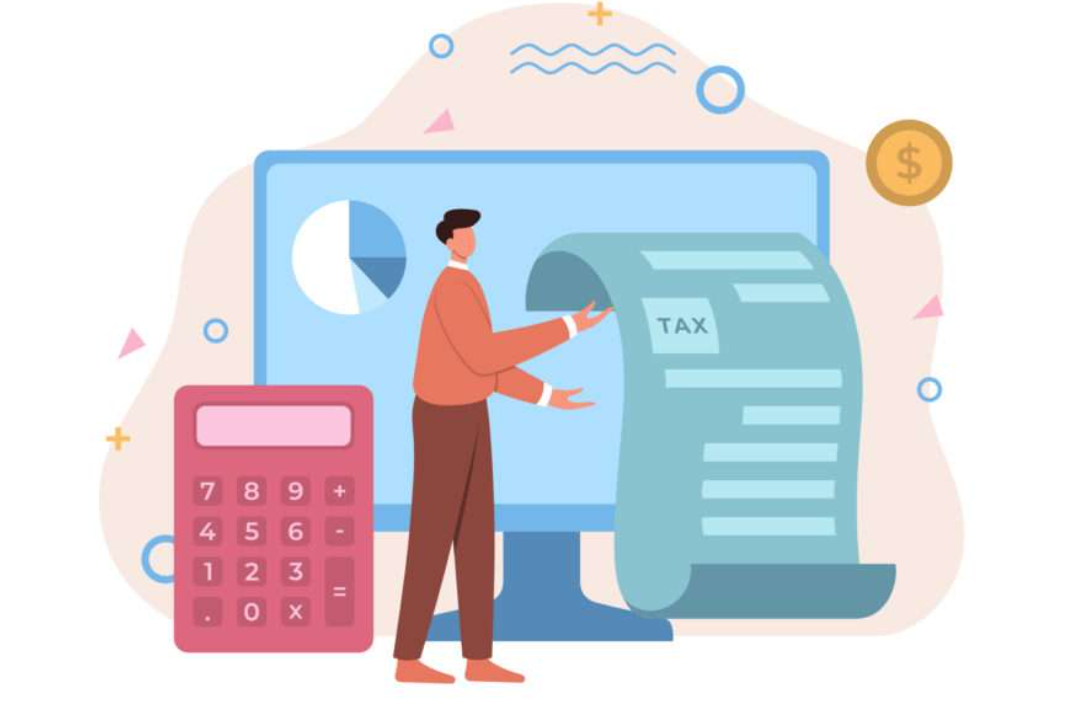How to Become Self Employed

If you’ve stumbled upon this blog post then you must be thinking of going freelance or perhaps you want to get a peek of all the things that come with becoming a self-employed…
The self-employed sector is thriving. As of July 2023, there’s been approximately about 4.24 million sole traders in the UK, making up a small portion of the small business market. It’s not hard to see why self-employment is so appealing, thanks to its numerous benefits like you can work from where you want, choose your own working hours and make more time for a better work/life balance etc. However, although alluring, it can be incredibly intimidating to start off as a sole trader leaving you questioning the most optimal way to prepared and started. But, nothing to worry about because that’s what this blog is all about.
Is Being Self-employed The Right Option For You?
You’re probably tired of working under somebody else and want to consider going freelance. Or maybe you want start a small side gig on top of your current job to earn a little extra income. Whichever one it may be it’s easy to get caught up in the benefits of working for yourself and all the other pros that come with it, but its important to remember the certain cons that come with it too. Here are some pros and cons for you to consider when becoming self employed:
PROS
- You can work from wherever
- Work however many hours you want
- More control over your earnings and how much to charge
- Autonomy over key business decisions
- Self-employment gives you creative freedom
- self-employment offers flexibility that normal employment doesn’t
CONS
- You may end up working more hours.
- There’s no work-life balance.
- Unpredictable income (you may experience little to no income at times).
- You’ll be responsible for your own bookkeeping and accounting etc.
- No employee benefits.
- Getting capital can be difficult.
- Self-employment can result in social isolation.
So consider everything thoroughly and carefully before going down the route of self-employment because with it comes alot of baggage hence not for everyone.
How Exactly Do You Want To Be Self-Employed?
Now before you go on to become Self-employed, you have to pick which category you want to belong in. there are three main ways of becoming self-employed; Sole trader, Limited company or Business partnership.
Sole Trader
A sole trader is an individual who registers as self-employed and conducts business as a single entity. In this setup, the person and the business are essentially one and the same. As a freelancer, the most straightforward and commonly used method to legally structure your business is by filing for Self Assessment with HMRC, the avenue through which you manage your tax payments. While this approach doesn’t provide the same level of liability protection as a limited company, meaning you’re personally responsible for any business losses, it’s typically the preferred choice for most freelancers.
Limited Company
Setting up a limited company is like creating a separate legal entity for your business. According to Companies House, the owner of a limited company is not personally responsible for the business’s financial losses. However, it’s important to note that if you own a limited company, you’re not considered self-employed; instead, you serve as both the owner and an employee of the company. While this option offers liability protection, it can be administratively complex and is generally more suitable for freelancers with higher incomes, often not practical for those just starting out.
Business Partnership
In a Business partnership, individuals combine resources to establish a business, sharing responsibilities, expenses, profits, and losses. This arrangement is formalized through a legal agreement outlining contributions and profit-sharing.All partners, whether individuals or legal entities like limited companies, share responsibility for debts under Joint and Several Liability. Also a partner doesn’t necessarily have to be a person – As it seems a limited company also counts as a legal person and can therefore also be considered a partner. It’s essential to designate a partner to manage the records and tax returns of the partnership. Said partner would also have to register their partnership with HMRC for Self-assessment.
Each and every one of them have pros aswell as drawbacks. It mostly depends on what suits and benefits you most depending on your situation. So its very important that you take your time and think things through carefully before deciding which one to go for.
Creating Your Self-Employment Business Plan
After deciding what type of self-employed worker you want to be, its crucial to understand all your obligations and responsibilities as a self-employed and how you would want to form and start off your business. After all every succeeding business needs a business plan. Now this covers many things such as:
- Depending on your chosen niche its important to do thorough research of how to best form and run your chosen industry. Every business is different and will therefore vary in certain matters.
- You’ll need to know all the legalities that come with being a self-employed like doing ur own taxes/VATs and making an estimate how much you’ll have to pay, what expenses you can claim, the deadlines you’ll need to consider of all the above or even wether you have to register for as a self-employed at all (depending on the exact income you get and the trading allowance).
- Its important that you get all the business planning and strategising done and ready before you register as a self employed because getting registered is almost instantaneous and dosent have to be done before you are starting off.
- Also once your business is set to go you wouldn’t want anything holding you back and would want a smooth ride I’m sure. So make sure all your planning is ready beforehand!
- The law requires your business to get insured so you’ll need to choose insurance that suits your industry and business type. Options include public liability insurance, employee liability insurance, sole trader insurance, and professional indemnity insurance.
- As you are in the planning stage its also crucial to consider if you can truly manage yours and the businesses taxes altogether or wether you’re better off leaving it all to a trusted accountant. Because lets be real taxes are exhausting and a whole lot of stress mixxed together. As a newbie self-employed there will already be plenty on your to do list adding taxes and bookkeeping etc on top of that will just wear you out and lead to a potential burn out because having that much on your plate is really not healthy 🤒.
Self-Employed Budget Plan
After finalising your business plan you need to think about the financial landscape of getting your business off the ground. Your initial investment might be minimal if you already possess most of the necessary tools, or you might have to purchase a whole array of new equipment. Lets look at some of the things you may need to include in your budget to start off your business smoothly:
- Essential items like tools, computers, and phones.
- Desk and office equipment
- Buying or hiring a vehicle for travel to work
- Vehicle fool cost and maintenance
- Online subscription services to digital tools
- Building and hosting a website
- Advertising and marketing materials
- Insurance and accountancy costs.
You might not require all these items initially, but it is essential to assess your upfront investment needs. Consider personal expenses like rent, mortgage, and bills, as they affect your budget. Although you can reclaim business purchase costs through allowable expenses in your self-assessment, remember you’ll need to cover these expenses upfront.
Now Register Yourself As Self-Employed
It’s finally time to register yourself to HMRC as a new self-employed. By registering with HMRC, you inform them that you’ll be earning income independently, requiring you to report and pay taxes, including National Insurance contributions and personal income tax. To fulfill this, you must complete a tax return annually.
To get started, register directly with HMRC online. Simply provide some personal details and your email address to gain access to the online portal. This platform allows you to submit tax returns and manage your financial status as a self-employed individual.
You should bear in mind though that as a sole trader this is the only step required however if you wish to set up a limited company the next step 👇is required!
Register With Companies House
This step is specifically for those starting a limited company. When establishing an LTD, you need to register with Companies House. Provide your chosen business name and all necessary information, including a memorandum of association and articles of association. These documents outline the foundational rules for governing your business and identifying current participants.
Double Check And Consolidate Your Business
Many of you must be thinking; ‘My business is finally official so the hardest part is over’ , right?
Well no… cos the real hard work starts now. 🙃
At this stage, you’ve covered the essentials: you’ve created your business plan, understood your obligations, and registered as self-employed. Now, it’s crucial to review everything and ensure the details are correct.
Before you venture any with your new business, we advise you to take the time to ensure the foundations you’ve laid are sturdy.
Take a moment to double-check the information you provided to HMRC and Companies House. Consult with a financial professional to verify your accounting practices and address any oversights. Discuss your plan and strategy with a business advisor. While it might seem like an extra step when you’re eager to start, consider this:
Canagf’s elite accountants take care of all your accounting needs without you needing to lift a finger leaving you free to attend all your business needs worry free. We also offer business advice if you need any specially to new business owners.
If you need more information, then look no further than Cangaf Ltd. Contact us today for a free, no-obligation quote, and let us help you with all your accountant needs!


